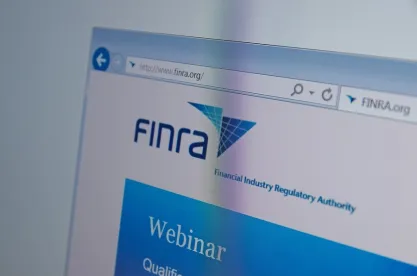In a recent interview with CNBC, FINRA Chair Eileen Murray forcefully made the case for increased government regulation of environmental, social and governance (ESG) disclosures by public companies. Citing concerns with the lack of ESG accountability, consistency and transparency, Murray opined that the current system of self-regulation and reporting is not enough: “I see ESG as an ecosystem. . . . it’s going to take regulators, business, and educators to deal with this.”
The stakes are huge, as investors are increasingly drawn to companies that certify their compliance with ESG standards. Sustainable investments now total $17 trillion in the US alone according to a recent report from the Forum for Sustainable and Responsible Investment. But, Murray says, investors seeking responsible investments are often left in the dark: “How many companies are reporting on ESG and saying they are ESG compliant when they’re really not? What is the standard? What does it mean?”
As former co-CEO of the world’s largest hedge fund, Bridgewater Associates, Murray brings a unique perspective to the debate over the role of government agencies in the regulation ESG disclosures. While in the private sector, Murray believed companies could self-regulate—but she has since changed her tune: “I was dead wrong. . . . We need regulators to step up and start to ensure that companies are applying standards in disclosure.”
Significantly, Murray deferred to the SEC when asked which agency should be responsible for regulating ESG disclosure requirements, pointing out that SEC Chair Gary Gensler has “put people in place to spearhead these initiatives” on ESG. Consistent with Murray’s calls for “collaboration between regulators and business,” the SEC has spent much of this year soliciting and compiling public comments for an upcoming release of new rules related to climate change and other environmental disclosures.
For its part, FINRA appears equally poised to contribute to the emerging regulatory landscape, focusing on diversity, equity, and inclusion (DEI) disclosures. During her interview, Murray applauded Nasdaq’s new listing rules that require companies to have at least two diverse directors or else publicly disclose board diversity statistics on an annual basis. “Without those kinds of movements, we aren’t going to make progress, and I think history demonstrates that.” Although public comments on DEI disclosures are now closed, companies can expect upcoming regulations to reflect a similar “comply or disclose” framework.





 />i
/>i

